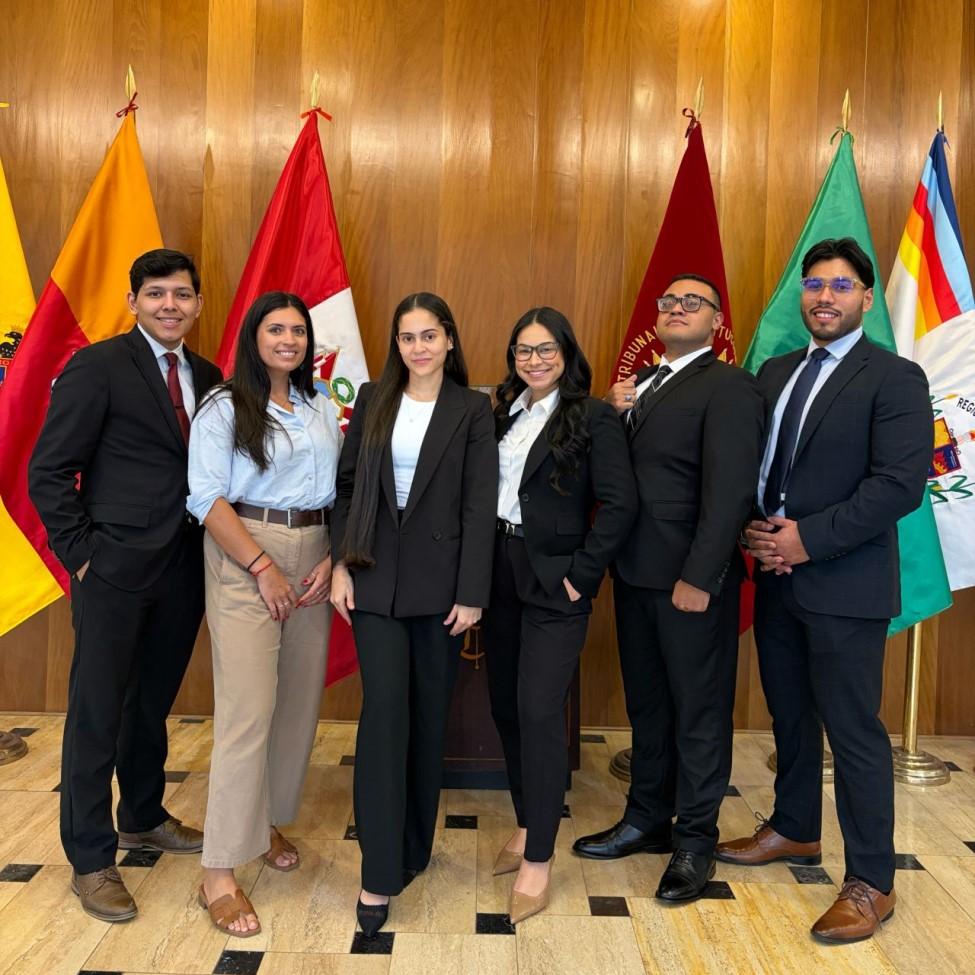
Op-Ed | Is Accidentally Causing A Person’s Death A Homicide?
Bennett L. Gershman, a distinguished professor at Pace University’s Elisabeth Haub School of Law, authored the amNY opinion piece exploring whether accidentally causing a person’s death can legally qualify as a homicide, using a recent Greenwich Village case to unpack the nuances of criminally negligent homicide under New York law.
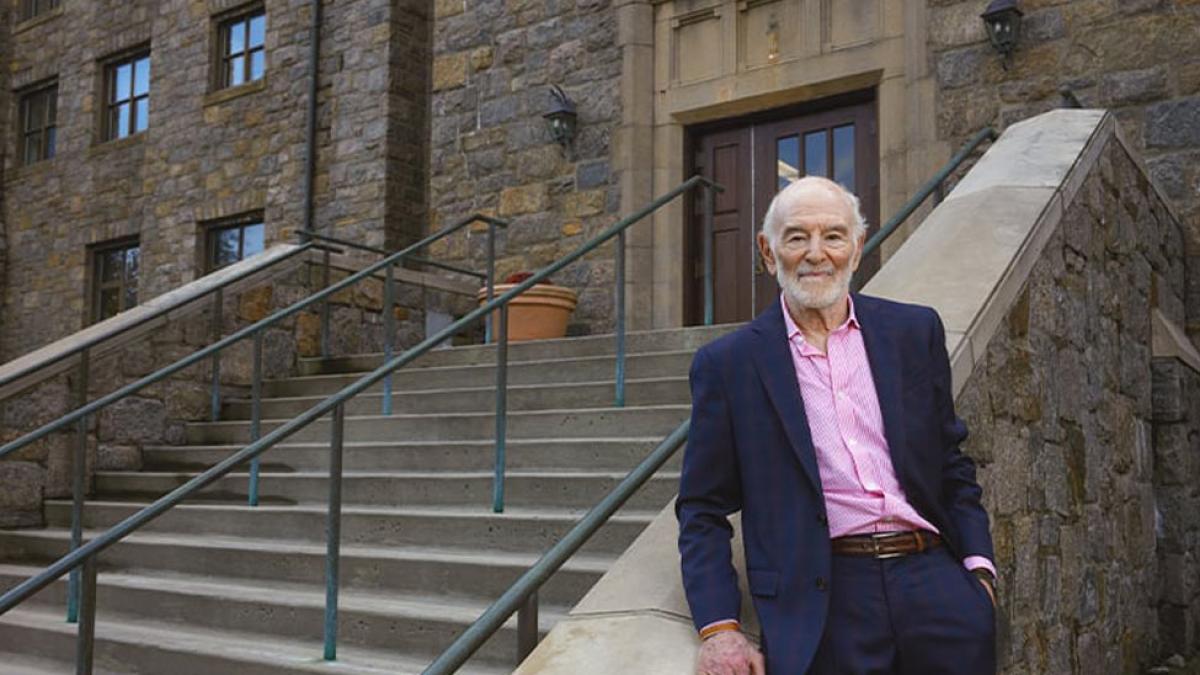
Kendall Jenner Addresses 'Mean' Speculation About Her Sexuality
Dyson Professor Melvin Williams appears in USA Today amid coverage of Kendall Jenner addressing speculation about her sexuality. Professor Williams situates the story within the broader dynamics of celebrity journalism, noting that while public curiosity is baked into fame, neither celebrities nor private individuals owe explanations about their sexual orientation. He emphasizes that disclosures should remain a matter of personal choice, not public pressure.
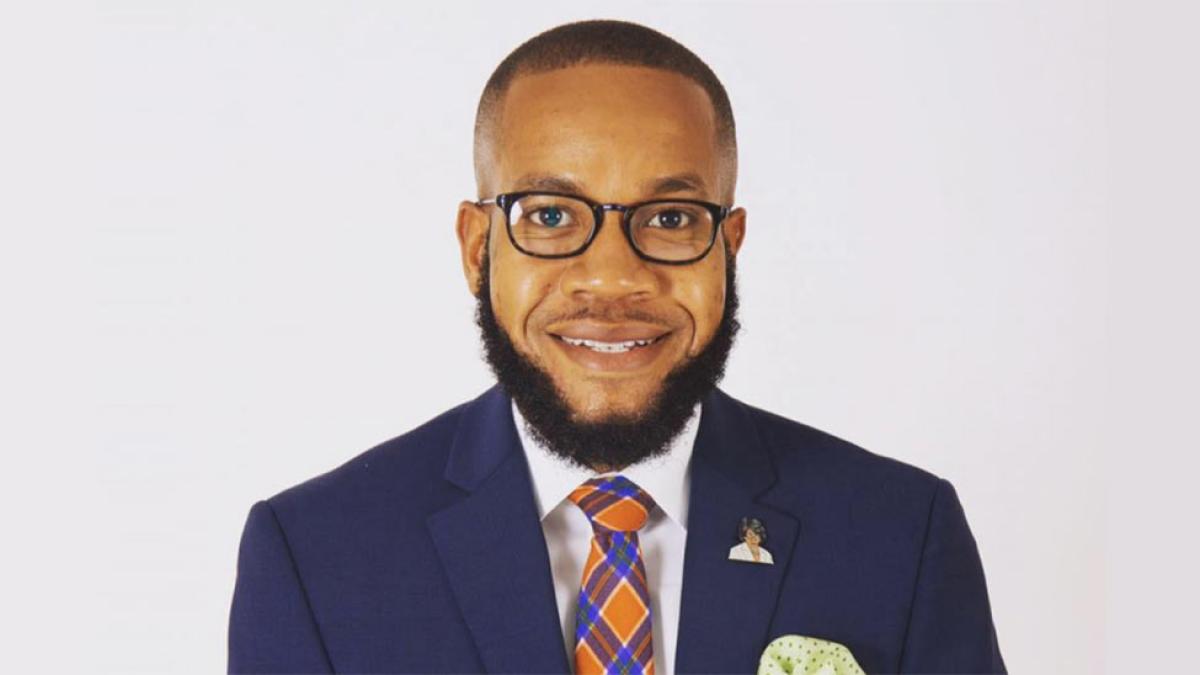
Many Epstein Files Have Been Released — And Two Princeton Alumni Have Legal Connections
The Daily Princetonian cites Bennett Gershman, a professor at Pace University’s Elisabeth Haub School of Law, in reporting on newly released Epstein files, noting his prior consideration as a potential expert witness in related proceedings.
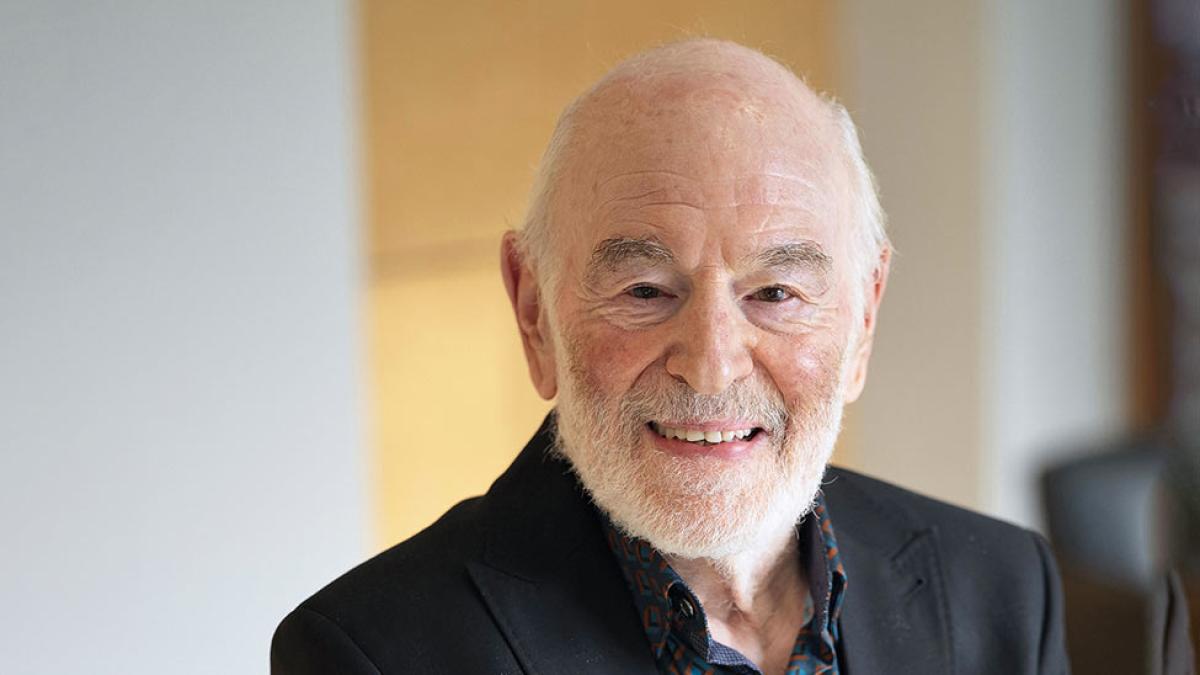
Commentary: Owasco Lake case highlights the value of New York's Green Amendment
Faculty Director of the Environmental Law Program and Professor Katrina Fischer Kuh writes a piece in Times Union about how New York’s Green Amendment can be used to advance environmental protections when regulatory processes stall. Drawing on a recent decision involving agricultural runoff into Owasco Lake, Professor Kuh explains how constitutional environmental rights can help enforce existing laws that protect water quality and public health.

Asian Masculinity
Dyson Professor Seong-Jae Min pens an op-ed in The Korea Times examining shifting portrayals of Asian masculinity in media. He explores how representation—once dominated by Orientalist stereotypes—has evolved in ways that increasingly shape dating culture and social perception, demonstrating the media’s power to both reflect and influence society.
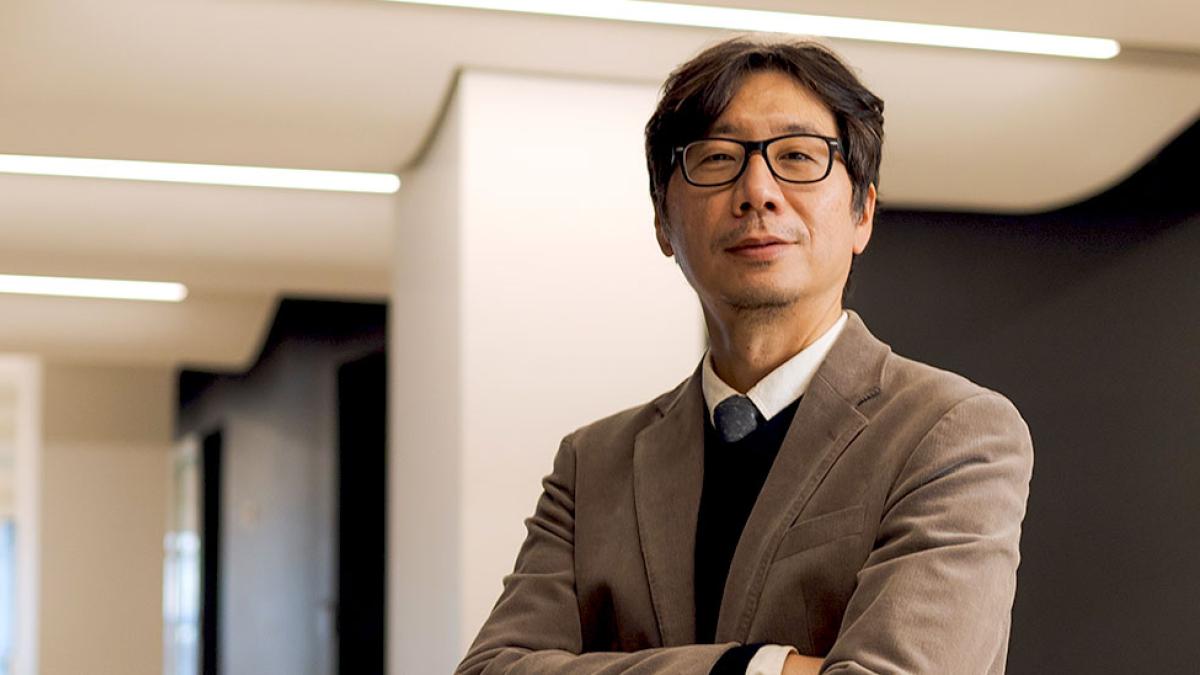
Pace University President Named AJC-Hosted Fulbright Specialist to Lead Transatlantic Effort Against Rising Antisemitism
The American Jewish Committee reports Pace President Marvin Krislov has begun work as a Fulbright Specialist hosted by AJC Paris, leading a joint U.S.–France initiative to address rising antisemitism and strengthen democratic resilience in higher education. The effort brings together academic, government, and civic leaders to identify policy solutions aimed at preventing antisemitism from becoming normalized, particularly among young people.
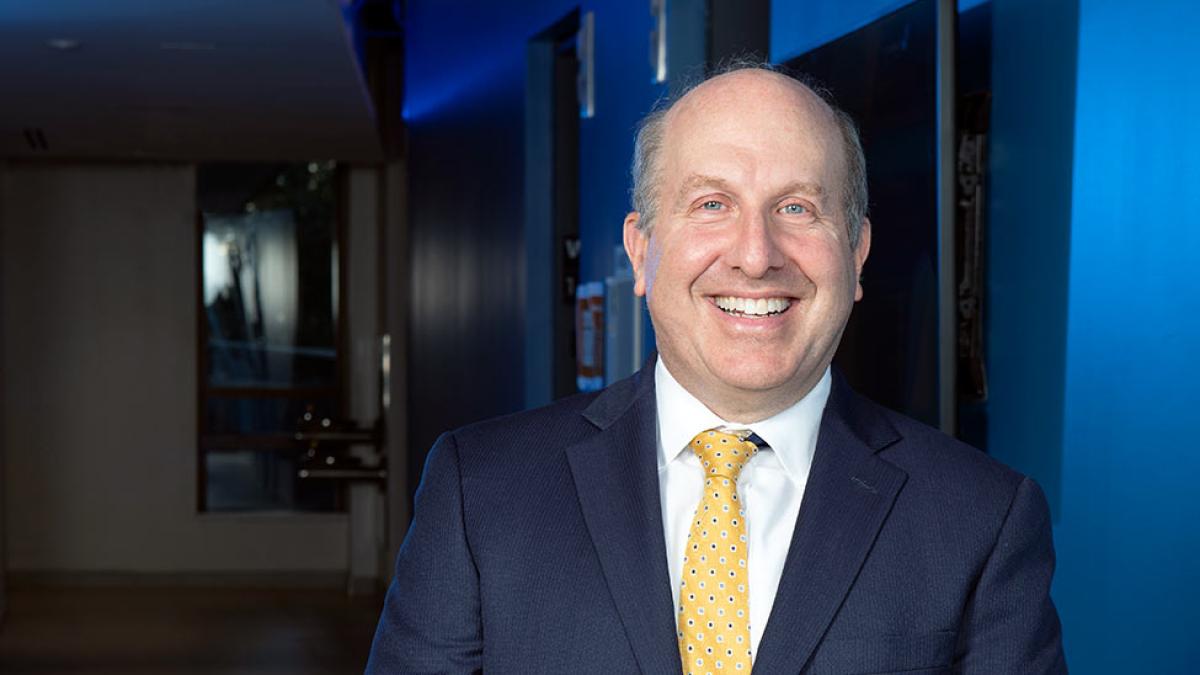
Metro North And MTA Win Summary Judgement In Lawsuit Filed By Local Residents Hoping To Abate Train Noise From The Croton-Harmon Yards.
Law Professor Todd Ommen provides a legal analysis to The Croton Chronicle following a judge’s dismissal of a lawsuit seeking to limit nighttime train noise at the Croton-Harmon rail yard. Professor Ommen says his team is disappointed with the ruling and plans to appeal.
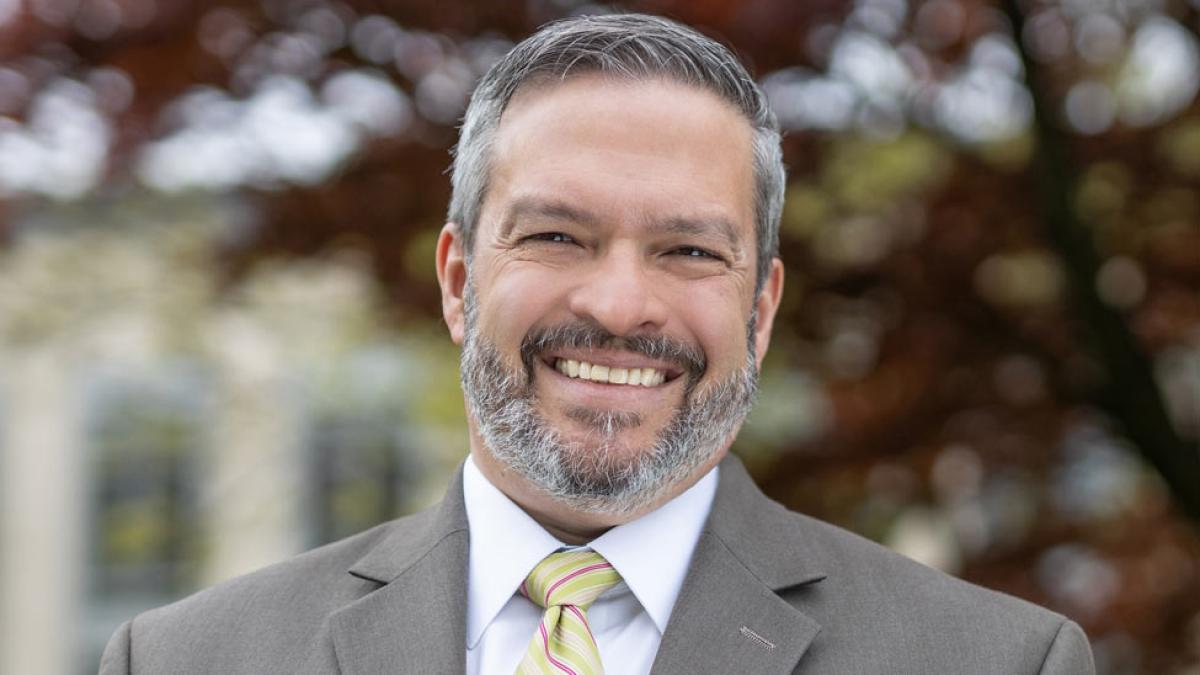
Open-Access ‘Research Methods For A Better World’ Course Materials
The Philadelphia Higher Education Network for Neighborhood Development (PHENND) highlights Dyson Professor Anne Toomey, who has released open-access course materials for Research Methods for a Better World. The materials—developed for a course emphasizing real-world impact from the start of the research process—include a full syllabus, lectures, activities, and evaluations, expanding access to applied research training.
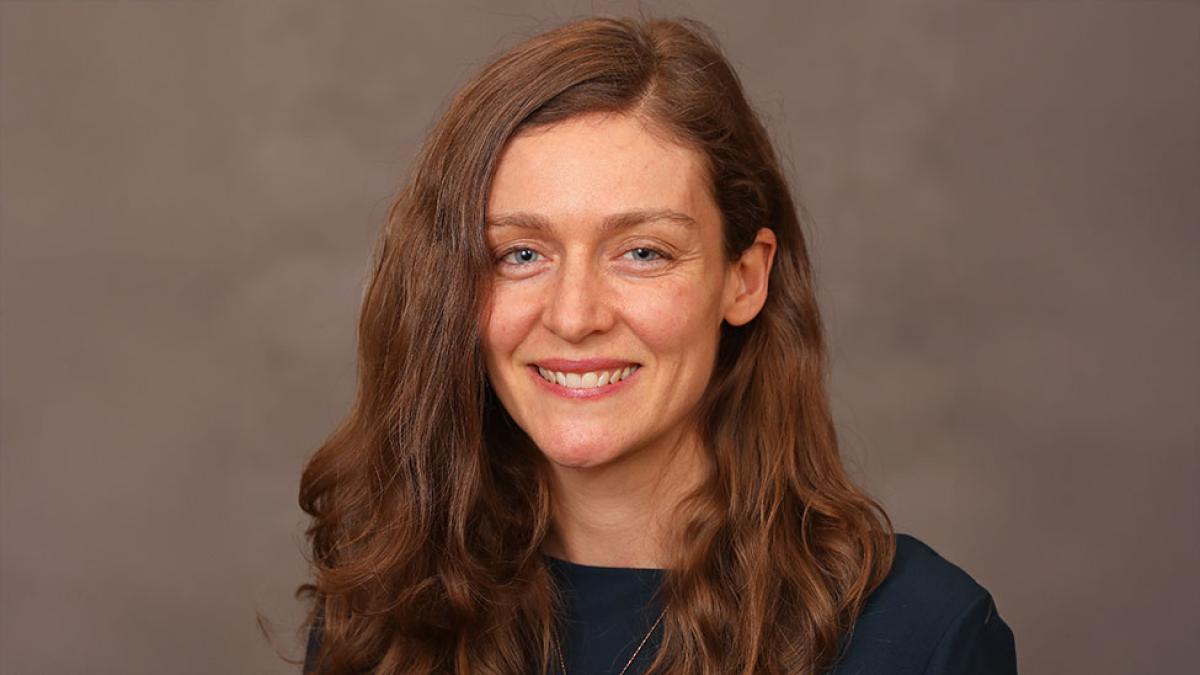
Elisabeth Haub School of Law at Pace University Welcomes Four Leading Legal Professionals to Its Board of Visitors
The Elisabeth Haub School of Law at Pace University is pleased to announce that four new members have joined its Board of Visitors. All four members, Jerome Abelman’93, Westchester District Attorney Susan Cacace ’89, Lauren Enea ’16, and Sapna Palla ’98, are distinguished Pace Haub Law alumni.
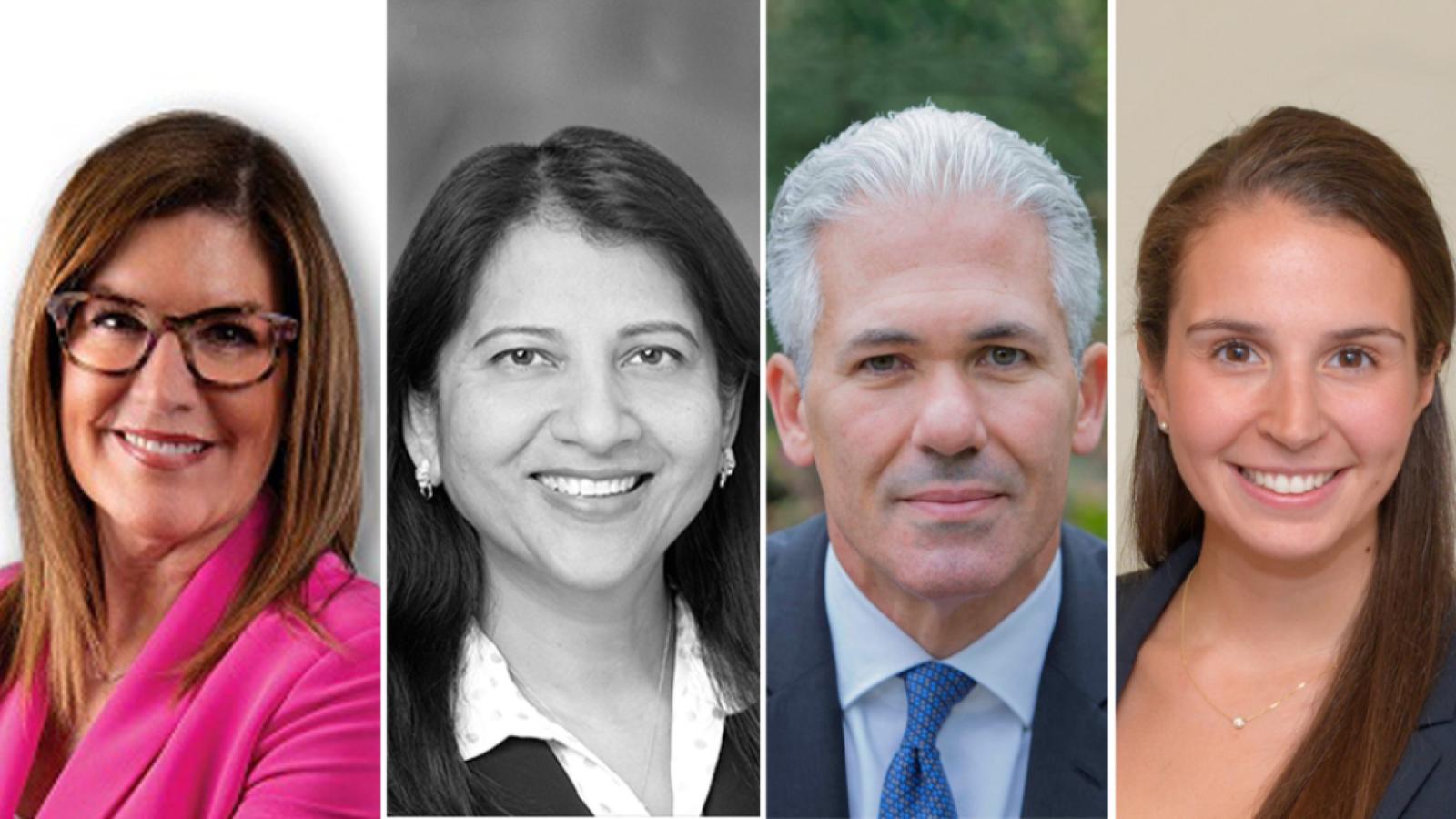
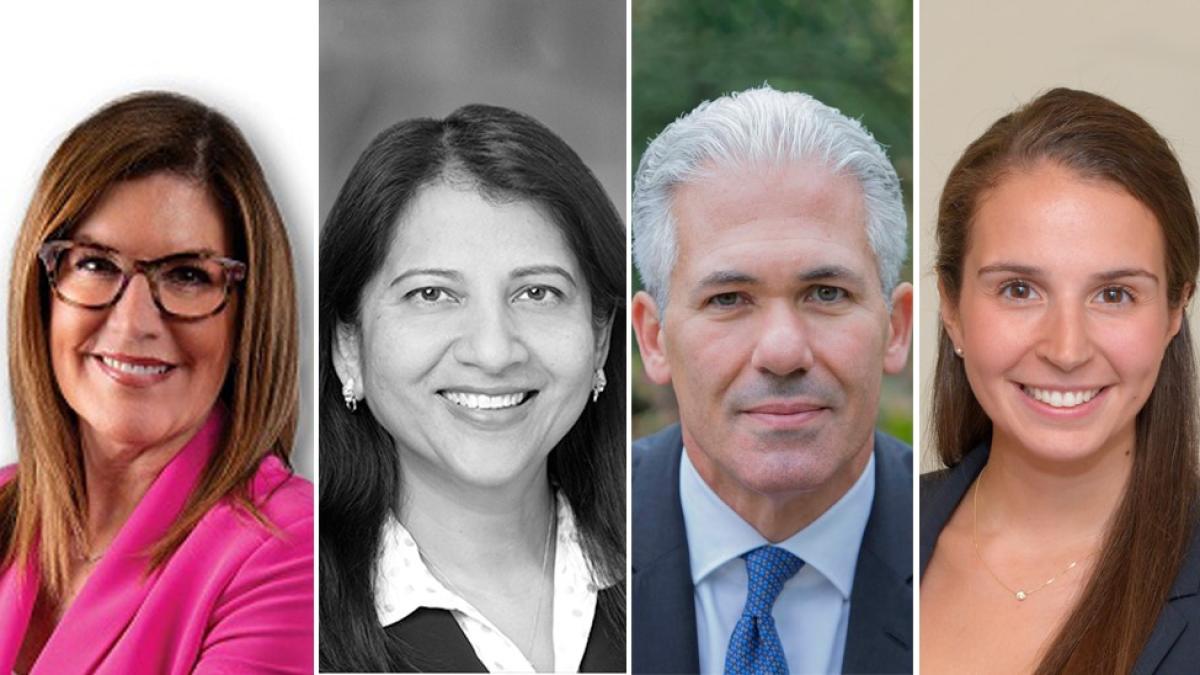
The Elisabeth Haub School of Law at Pace University is pleased to announce that four new members have joined its Board of Visitors. All four members, Jerome Abelman’93, Westchester District Attorney Susan Cacace ’89, Lauren Enea ’16, and Sapna Palla ’98, are distinguished Pace Haub Law alumni.
“We are honored to welcome four exceptional alumni and legal professionals to the Board of Visitors,” said Dean Horace E. Anderson Jr. “Jerry, Susan, Lauren, and Sapna each bring a deep commitment to justice and a strong belief in the power of legal education. Their insight and leadership will help guide Pace Haub Law in the years to come and their unique expertise will be invaluable as we prepare the next generation of legal advocates.”
Sapna Palla ’98 is currently a partner with White & Case. Sapna concentrates her practice on Intellectual Property litigation matters and has spent over two decades representing clients in the Life Sciences and Technology industries in high-stakes patent, trademark, copyright, and complex commercial matters, including successfully litigating disputes in federal and state courts in a range of jurisdictions. She also has extensive experience with alternative dispute resolution, including arbitration and mediation. In addition, Sapna counsels and represents a variety of US and international clients regarding US intellectual property rights. Notably, she also counsels clients about patent law in Asia, including China and India. Sapna is an inaugural member of Judge Janet Bond Arterton's Intellectual Property American Inns of Court. She has also served as adjunct professor at the Elisabeth Haub School of Law at Pace University. She received her JD from Pace Haub Law and her undergraduate degree from Pace University as well. Sapna has lived and studied in both India and Tanzania and she is fluent in Hindi and Marathi and conversant in French.
The Honorable Susan Cacace ‘89 serves as the District Attorney of Westchester County, where her leadership is defined by her unwavering commitment to justice, public safety and community well-being. Judge Cacace began her distinguished legal career as an Assistant District Attorney in Westchester County. In this role, she managed numerous felony trials and secured indictments in over 500 cases. She also made history by leading Westchester’s first dedicated animal cruelty unit, advocating for the welfare of voiceless victims and setting a precedent for innovative prosecution methods. Following nearly 15 years as a prosecutor, Judge Cacace transitioned briefly into private practice alongside her husband before being elected as a Westchester County Court Judge in 2005. Over nearly two decades on the bench, she presided over significant felony cases and established herself as a leader in the specialized courts. Notably, she presided over the county’s first Driving While Intoxicated (DWI) part and became the longest-serving presiding judge of the Sex Offense part in Westchester County history. Judge Cacace earned her JD from Pace Haub Law and her undergraduate degree from Pace University. She remains an active member of several professional organizations, including the Yonkers Lawyers Association, the Columbian Lawyers Association, the Westchester County Bar Association and the New York State Bar Association. Additionally, she supports community initiatives through her involvement with the Yonkers Lions Club and the Enrico Fermi Scholarship Fund.
Jerome (“Jerry”) Abelman ’93 was appointed as Group General Counsel and Director, Legal and External Affairs in May 2015 after joining the British American Tobacco (BAT) Management Board as Director, Corporate and Regulatory Affairs in January 2015. After 11 years as General Counsel, Jerry retired at the end of 2025. In his capacity as General Counsel, Jerry provided leadership to and oversight of a global department of approximately 1,000 lawyers and security professionals in over 100 countries. Prior to his appointment to the Management Board, Jerry held various roles including Regional General Counsel, Asia-Pacific in Hong Kong and Area General Counsel, Australasia, in Sydney. Before joining BAT, Jerry was with the law firm Chadborne & Parke LLP in New York and London. Jerry also served as a Non-Executive Director on the Board of Reynolds American, Inc. from February 2016 until July 2017 when it was acquired by the BAT Group. Jerry received his JD from Pace Haub Law and his undergraduate degree from Tulane University.
Lauren C. Enea ’16 is a partner at Enea, Scanlan & Sirignano, LLP. She concentrates her practice on Wills, Trusts and Estates, Medicaid Planning, Special Needs Planning and Probate/Estate Administration. In addition to her client successes, Ms. Enea plays a key role in the firm’s growth and recently led Enea, Scanlan & Sirignano, LLP’s expansion into a second office in Somers, NY. An active member of the local bar associations, Ms. Enea was appointed to the Executive Committee of the Westchester County Bar Association (WCBA) Trusts and Estates Section. She is also the co-chair of the WCBA New Lawyers Section, a member of the Board of Directors of the Columbian Lawyers Association of Westchester County, and chair of the New York State Bar Association (NYSBA) Elder Law and Special Needs Section Publications Committee and co-editor of the NYSBA Elder Law and Special Needs Section Journal. Ms. Enea was awarded the Outstanding New Lawyer Award in 2020 by the Westchester County Bar Association and the 2025 Shining Star Award from the Elisabeth Haub School of Law at Pace University. She was also named to the 2021–2025 Super Lawyers Rising Stars list and the 2023–2026 Best Lawyers Ones to Watch list. Ms. Enea was recognized at Westfair Communications' 2019 Millennial Awards and as a 2022 Westchester Wunderkin by 914INC. She serves on the Pace Women’s Justice Center's Friends of Gail Advisory Board and is a board member of the Italian American Forum and Opengate Inc., a nonprofit dedicated to empowering people with disabilities through compassionate care, meaningful support, and opportunities to thrive. She received her JD from Pace Haub Law and her undergraduate degree from Quinnipiac University.
The Board of Visitors furthers the interests of the Law School by involving alumni and friends in significant issues of concern to the School, and by building a sense of community that fosters pride and participation. The Board is comprised of leaders in the legal community who serve as advisors to the Dean on a variety of issues involving legal education. The Board is also dedicated to fostering a strong interest in the mission of the Law School by helping to recruit outstanding students, hiring graduates, and encouraging financial support from public and private sources. The Board is currently co-chaired by Alfred E. Donnellan '81, Managing Partner, DelBello Donnellan Weingarten Wise & Wiederkehr, LLP and Kathleen Donelli ’85, Partner, Goldschmidt & Genovese, LLP.
Pace Haub Law Student Advocates Reach Semifinals in the VI Moot de Derecho Ambiental Científica in Lima, Peru
A team of student advocates from the Elisabeth Haub School of Law at Pace University reached the semifinals of the VI Moot de Derecho Ambiental Científica, a fully Spanish-language international environmental law competition hosted by the Universidad Científica del Sur in Lima, Peru. Pace Haub Law was the first American law school to place as a finalist in the competition, finishing third overall in the written submissions and fifth overall in the Competition.
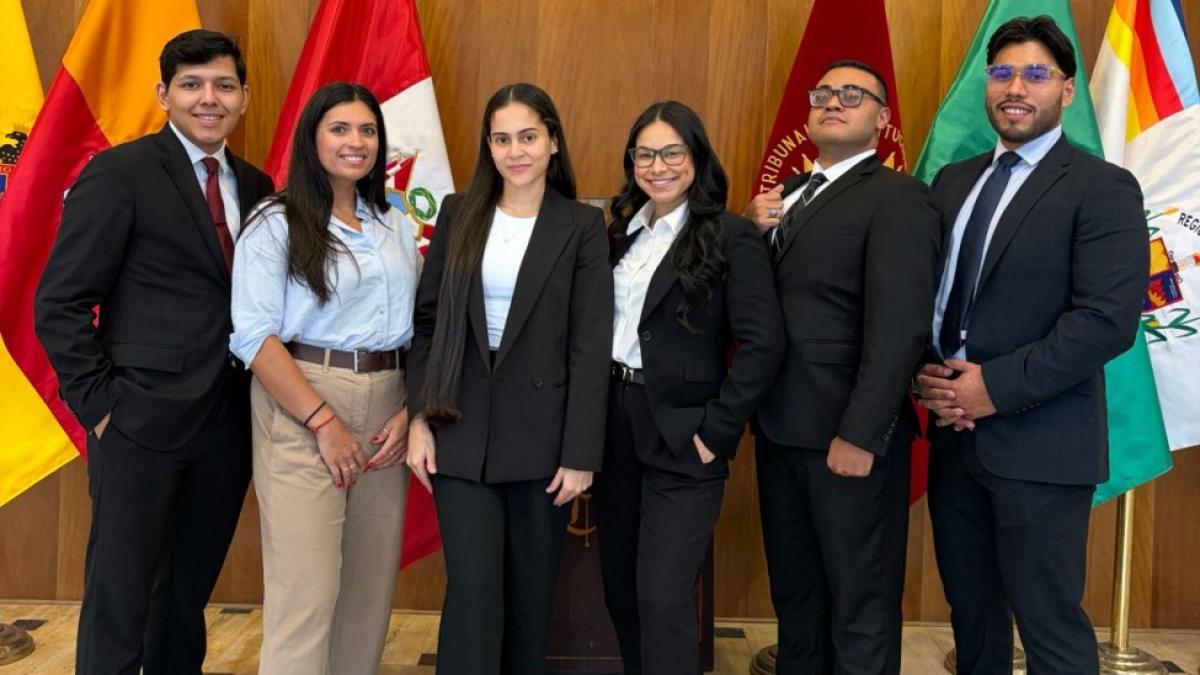

A team of student advocates from the Elisabeth Haub School of Law at Pace University reached the semifinals of the VI Moot de Derecho Ambiental Científica, a fully Spanish-language international environmental law competition hosted by the Universidad Científica del Sur in Lima, Peru. Pace Haub Law was the first American law school to place as a finalist in the competition, finishing third overall in the written submissions and fifth overall in the Competition.
The student team included Nicholas Caicedo, Endy Abreu, Sorangel Liriano, and Matthew Alexander Corrales and was coached by Pace Haub Law Alumnus Edgar Aguilar Ramirez. The team competed against international law schools in a simulated proceeding before the Tribunal Interamericano de Justicia Ambiental, held at the Tribunal Constitucional del Perú, one of the country’s highest constitutional courts.
Throughout the competition, the team drafted briefs and developed oral arguments on both sides of a complex environmental law problem, addressing issues including the rights of nature, glacier protection, and state regulatory authority in environmental governance. All advocacy was conducted in Spanish and required careful attention to comparative legal reasoning and institutional context.
Pace Haub Law student advocate Nicholas Caicedo noted that the work went beyond traditional advocacy skills. “Working on these issues in Spanish required attention not only to doctrine, but also to comparative reasoning,” he shared. “It shaped how I approach legal analysis through language, institutional context, and comparative systems.”
Sorangel Liriano, Pace Haub Law student advocate, reflected on the experience’s global impact. “Environmental law is a shared international conversation. Advocating before an international tribunal in my mother tongue on urgent climate issues was both a challenge and a privilege. We built deep team camaraderie and learned alongside students from around the world, leaving Lima not only stronger advocates, but part of a growing international community committed to environmental justice.”
Louis Fasulo, Director of Advocacy Programs and Professor of Trial Practice at Pace Haub Law, emphasized the significance of the team’s achievement. “This result reflects the strength of our advocacy training and our students’ ability to operate at the highest level in international and comparative legal settings,” said Professor Fasulo. “Reaching the semifinals in a fully Spanish-language competition in the setting of a constitutional court abroad is an extraordinary accomplishment and speaks to the rigor, preparation, and professionalism of this team.”
For the students, the experience reinforced a shared commitment to international environmental law and public interest advocacy. “Representing Pace Haub Law in this setting was both a significant and meaningful professional milestone, and one that affirmed our interest in international law, environmental governance, and compliance,” shared Nicholas.